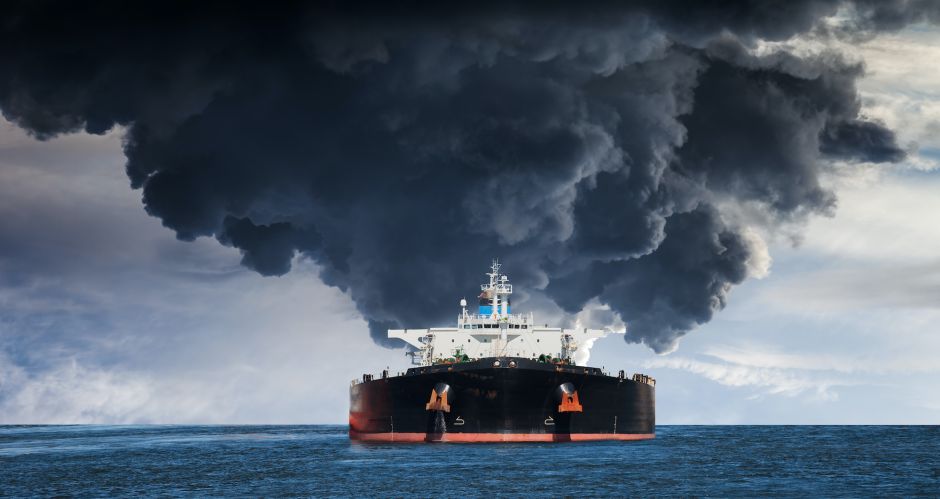Time to act!

Two days ago, the IPCC's latest synthesis report came out, which states that emissions continue to increase and that the situation is now extremely serious. At the same time, environmental organizations call on the International Maritime Organization (IMO) to tighten its emission targets.
“2023 is IMO’s year of decisive climate action. The time to act is now”, IMO Secretary-General Kitack Lim said in his opening remarks at the IMO's GHG Working Group session on Monday.
The meeting focuses on two main themes: the further consideration and finalization of the draft 2023 IMO strategy on reduction of GHG emissions from ships, and the further assessment and selection of measures, including an economic measure. The IMO has previously agreed that shipping should halve its carbon dioxide emissions by 2050, which is not enough to be in line with the Paris Agreement's goal that the Earth's average temperature should not increase by more than 1.5 degrees. In last year's negotiations, however, there was a breakthrough when a clear majority of member states supported the adoption of a 2050 absolute zero-emission reduction target under the IMO’s revised climate strategy, bringing the sector closer than ever before to the Paris Agreement goals.
”The revised strategy, together with the basket of technical and economic measures will set the way towards the decarbonization of global shipping and will provide the mechanisms and support to ensure that no one is left behind in this transition”, Lim continued.
But the question is whether it is enough. In connection with the meeting, the environmental organizations Clean Shipping Coalition (CSC), Seas At Risk, Clean Arctic Alliance, Carbon Market Watch and Pacific Environment issued a joint press release criticizing the IMO for not having done enough before and that it must therefore act even harder .
”IMO member states must listen to the climate-science, and urgently commit to halve climate pollution from ships by 2030 and to reach zero-emission by 2040. Given the disproportionate impacts of climate change felt in vulnerable and developing states already today, the IMO must also ensure this transition is just and equitable”, the environmental organizations states.
The UN climate panel, IPCC, also states in its latest report that the effects of a changing climate are already being felt all over the world and that today's efforts are far from sufficient to stop global warming. The report also highlights that it is clear that it is human influence through the release of greenhouse gases that causes climate change. How big the effects of these will be depends on how much the earth's average temperature increases. On April 13, there will be another interim report from the IPCC showing which measures are required to reduce emissions to a sufficient extent.
The IMO meeting runs until Friday.
-
 NextWave – en podd som ska locka unga
NextWave – en podd som ska locka unga -
 Ny studie: Eldrivna pendelbåtar kan effektivisera Stockholms kollektivtrafik
Ny studie: Eldrivna pendelbåtar kan effektivisera Stockholms kollektivtrafik -
 Sjöfartens utsläpp ökar
Sjöfartens utsläpp ökar -
 Sociala relationer påverkar val av bränsle
Sociala relationer påverkar val av bränsle -
 Sjöfartens omställning kräver ”mjukare” påtryckningar
Sjöfartens omställning kräver ”mjukare” påtryckningar -
 Hon hade avtalad tid med Kapten ynkrygg
Hon hade avtalad tid med Kapten ynkrygg -
 Lighthouse omvärldsanalys 2025 – osäkerhet och tullar präglar sjöfarten
Lighthouse omvärldsanalys 2025 – osäkerhet och tullar präglar sjöfarten -
 Se seminariet Shipping in the Marine Environment
Se seminariet Shipping in the Marine Environment -
 Vad betyder egentligen de 90 procenten?
Vad betyder egentligen de 90 procenten? -
 Hålla där...
Hålla där...

